What's in store - September 2023
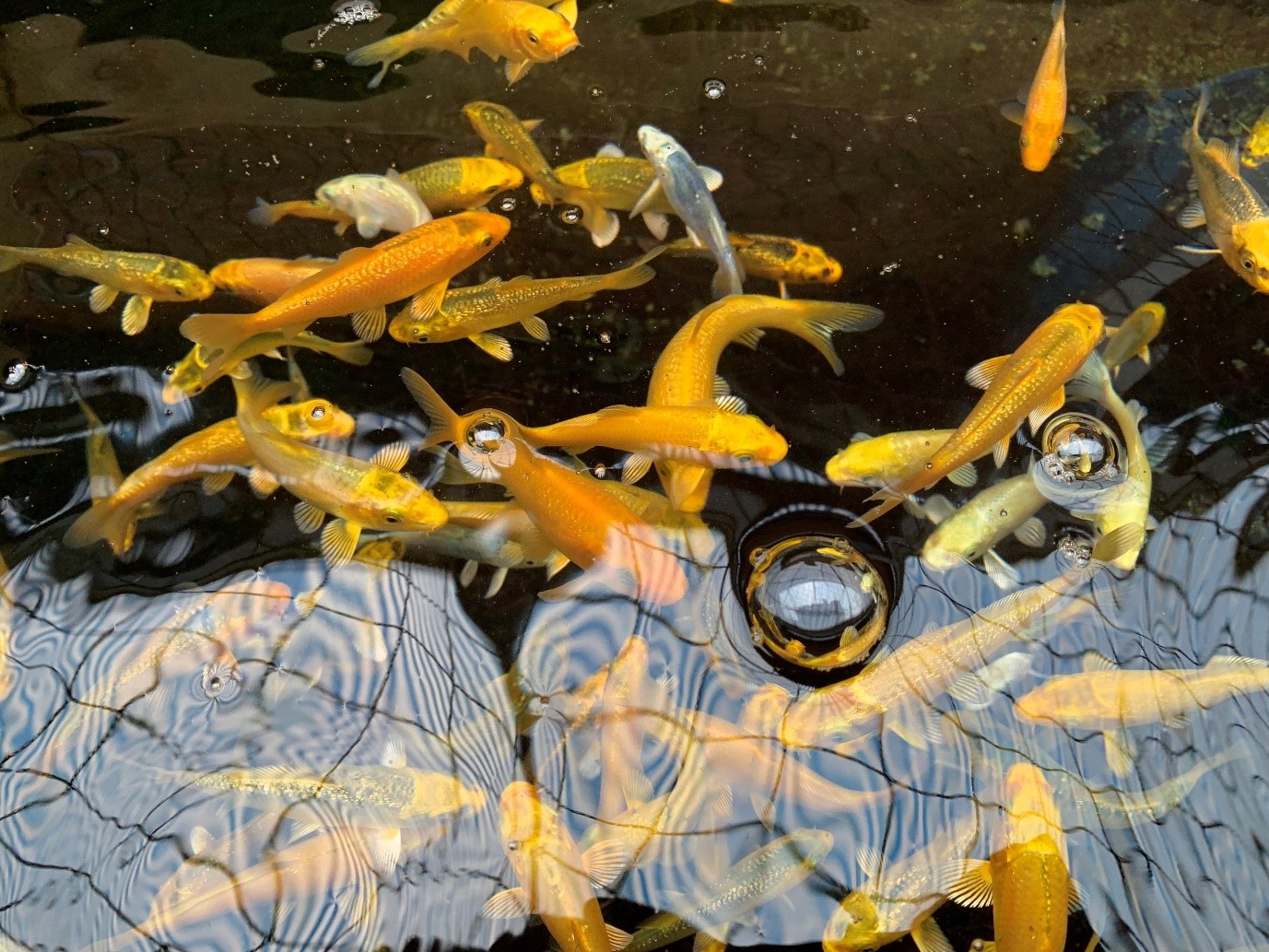
This is a great time of year to take advantage of the growth that’s taken place in our system fish over the summer. In some batches of fish such as these Ghost koi (Cyprinus sp.) that are destined for greatness, you can see that some are already significantly larger than when they arrived from our suppliers. These were the cheapest koi at our Mere Park store but were excellent value at their original price, giving you decades of pet pleasure for around a fiver! For those in search of more pedigree fishes, their Japanese relatives in another system offered named varieties from named breeders.
https://www.fishkeeper.co.uk/fish/freshwater/pond-fish/ghost-koi
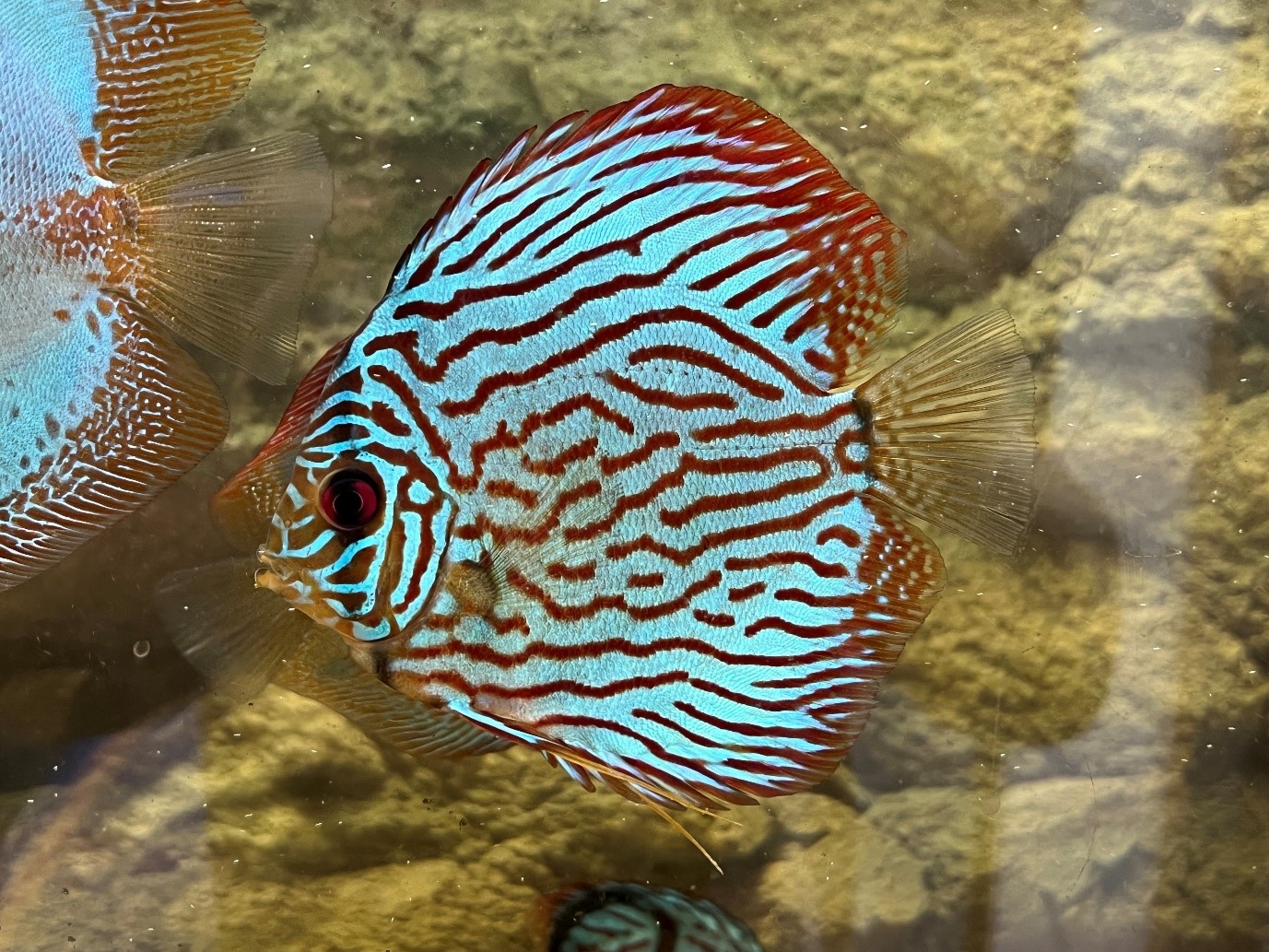
Generations of breeding and selection have led to a dazzling range of different colour forms in aquarium strains of Discus (Symphysodon sp.) with some, such as this fish at our Chester store, resembling their wild ancestors more closely than the solid white, orange or red individuals often seen alongside them. Like their Angelfish cousins, it seems that domesticated fish are hybrids that often contain parentage from wild fishes that are now regarded as separate species. All discus are social fish that need to be kept in groups to enable them to express normal behaviours such as aggression – they are cichlids after all.
https://www.fishkeeper.co.uk/fish/freshwater/cichlids/discus
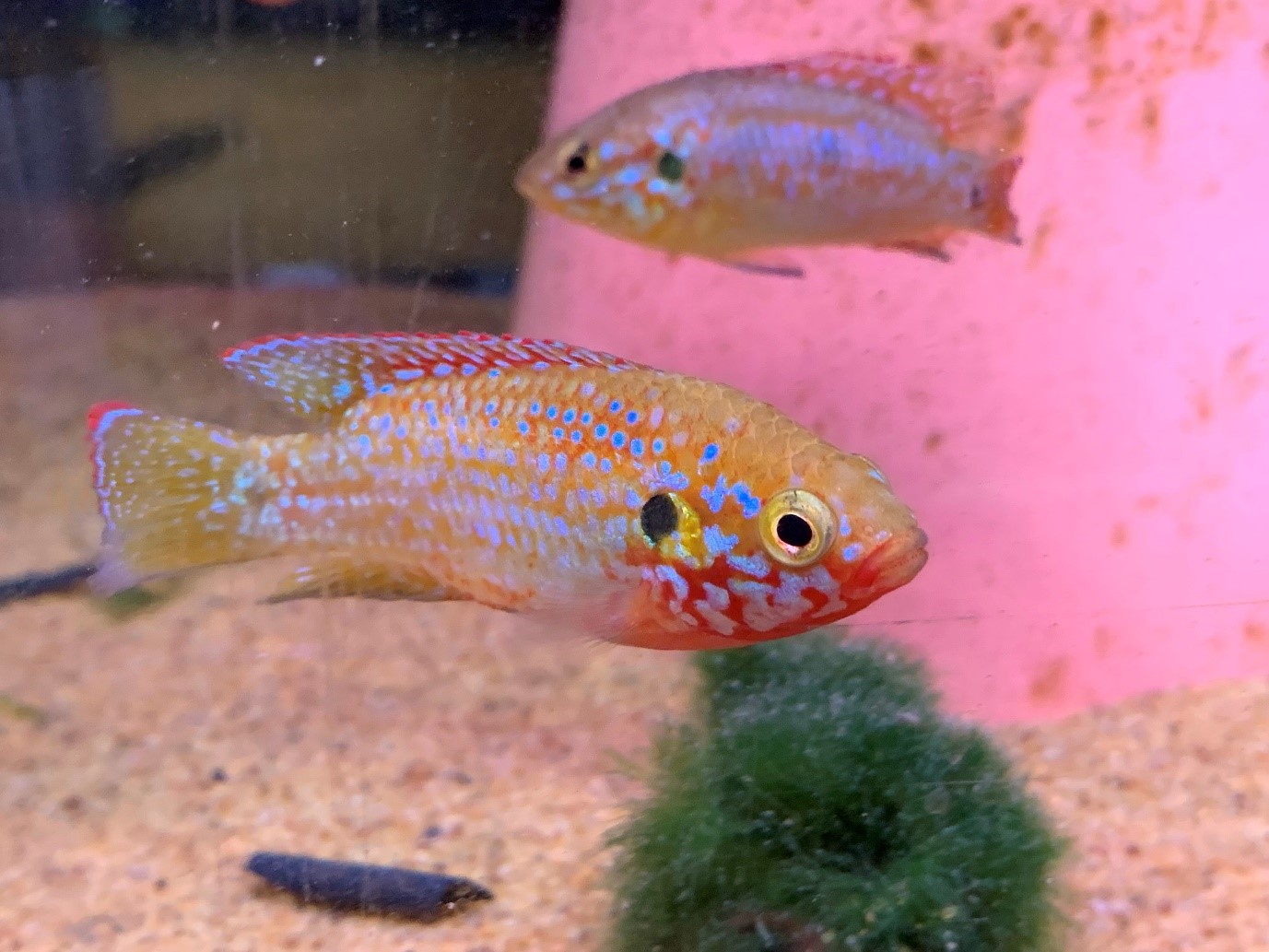
Cichlids are a very diverse group of fishes and if you were so inclined, you could find species for pretty much every type of aquarium whether community, unheated temperate (even summer pond!), or marine. The early days of the hobby were characterised by experiences of keeping territorial species of this group in tanks that were often too small to allow any tankmates to keep a healthy distance from angry parental cichlids and so a reputation was born. To be fair, many cichlids require very large aquaria in order to breed successfully without damaging their neighbours and these Neon jewel cichlids (Rubricatochromis sp.) are no exception. This aquarium strain seems to have been around forever but if specimens like these at our Pontarddulais store were introduced to the hobby today, you’d say that they were well worth the bother.
https://www.fishkeeper.co.uk/fish/freshwater/cichlids/neon-jewel-cichlid
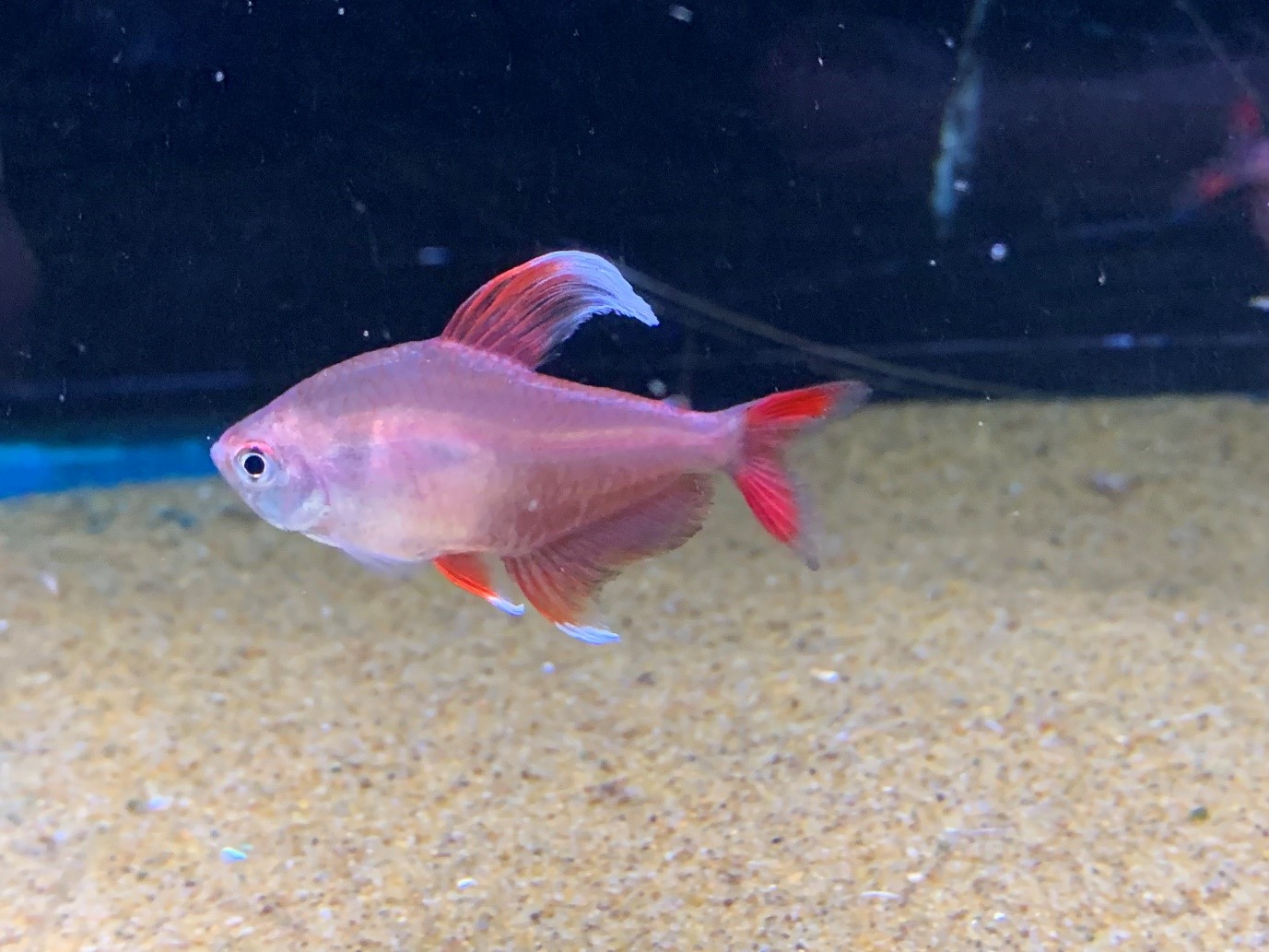
The Rosy tetra group are much easier to keep than they are to tell apart, with a few different species being particularly hard to distinguish. The Whitefin bentosi (Hyphessobrycon bentosi) is an aquarium form that does what it says on the tin and displays a bright contrast between its fin tips and a pink body colouration. These deep-bodied tetras make good feature fish for moderately sized set ups, or breath-taking shoals for large aquaria, where the males will spar with one another over their personal space whilst trying to impress the females. This handsome male was part of a group at our Swansea Enterprise Park branch.
https://www.fishkeeper.co.uk/fish/freshwater/characins/bentosi-tetra
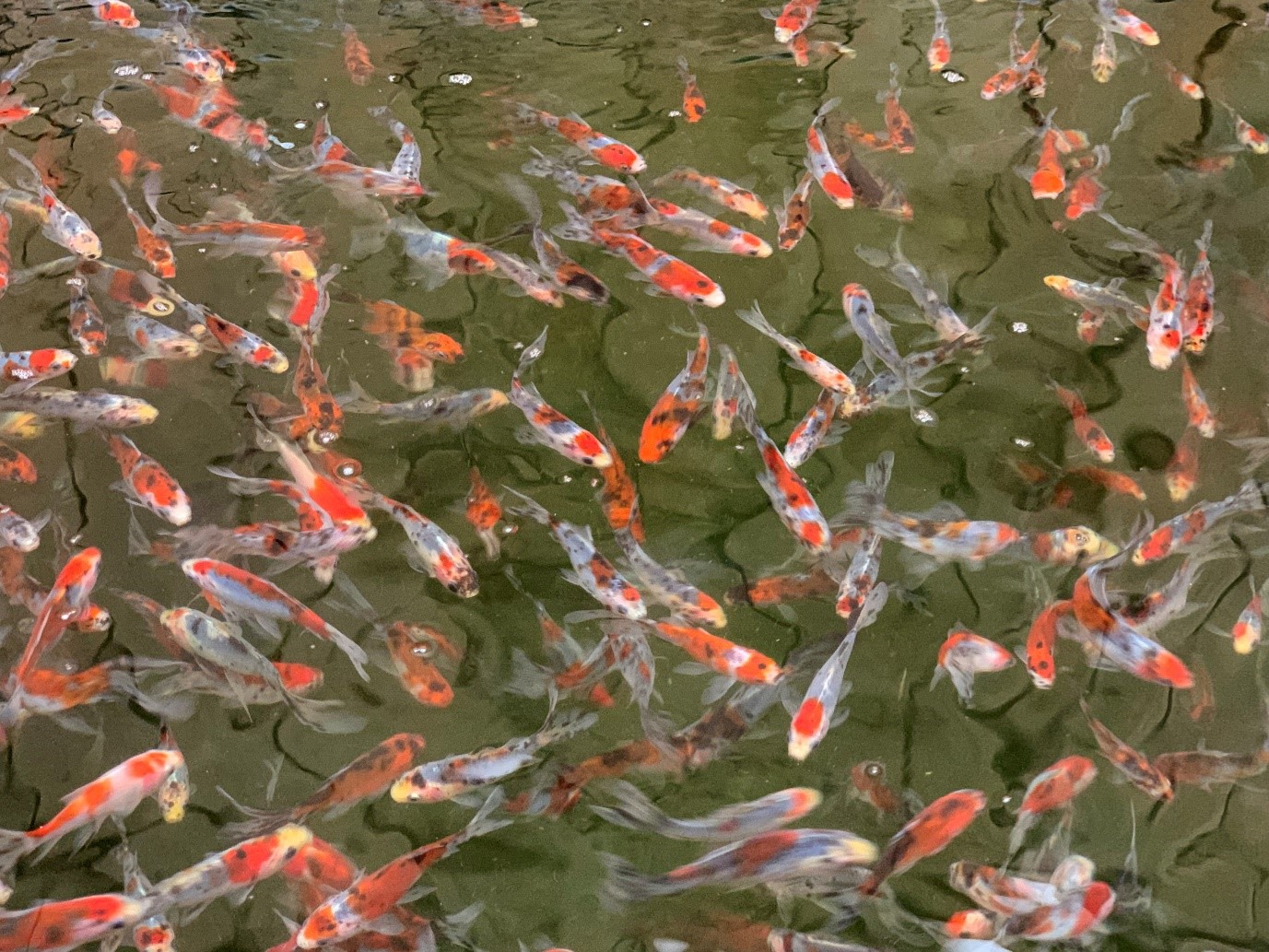
It’s easy to overlook them because they’re so familiar but Shubunkins (Carassius auratus) are some of the most varied and colourful pond fish that you’ll find. Their scales are largely transparent, allowing the skin pigments to be seen and the expression of colours that aren’t seen in any other breed of pond-hardy goldfish. As goldfish, they’ll happily live and breed in a pond alongside other varieties giving a contrast to the yellow forms especially. You’ll find ‘Shubs’ in all of our stores that stock pond fish.
https://www.fishkeeper.co.uk/fish/freshwater/pond-fish/shubunkin-
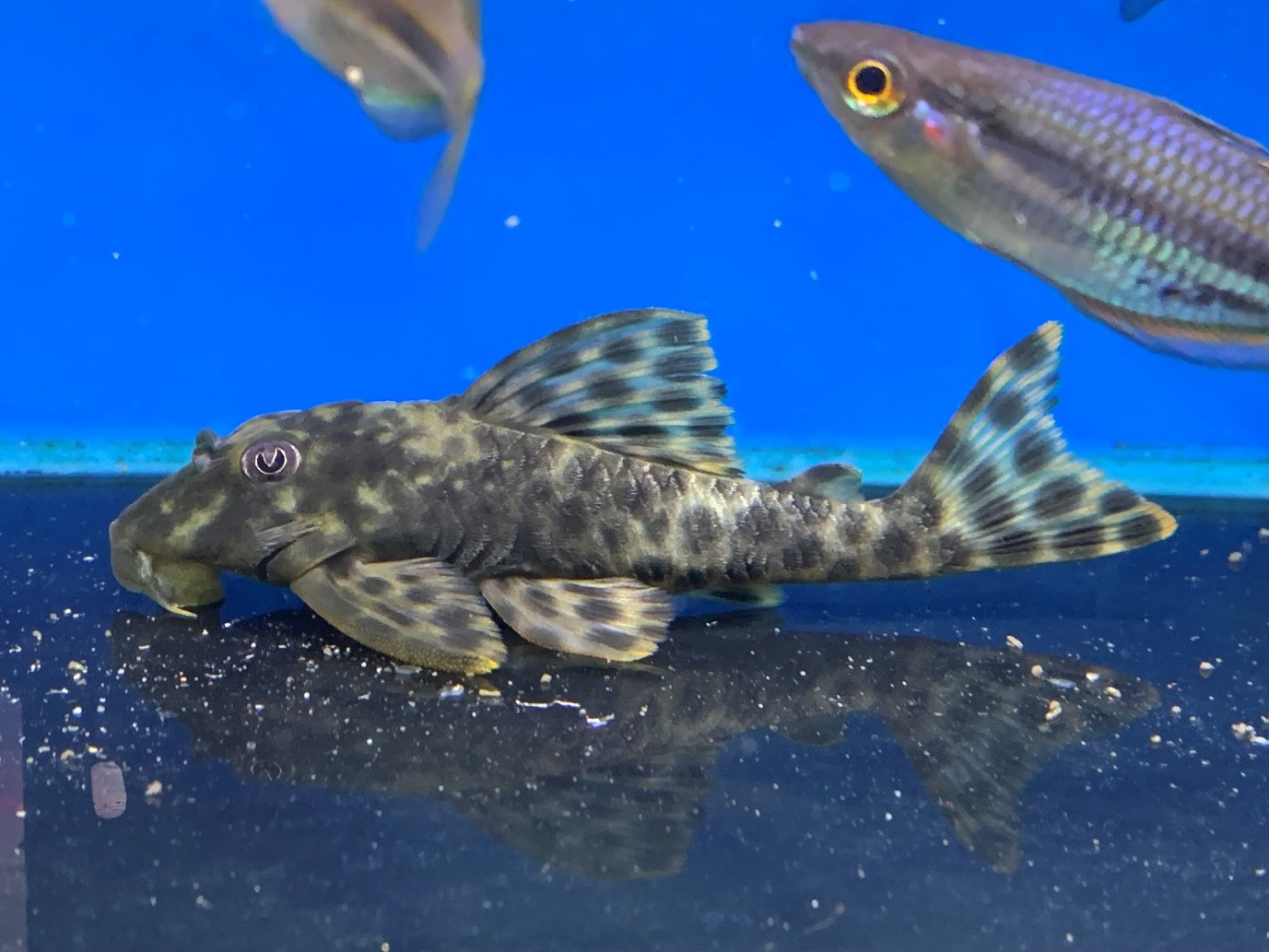
As the pond season reaches a climax and things start to cool, it’ll be time to shift our focus indoors to the tropicals. The start of the ‘trop season’ this year sees many new faces in our line-up of photo labels that give more comprehensive care information for over 900 species, including this quietly gorgeous Peckoltia (Peckoltia oligospila) seen recently at our Ascot store, which carries a great selection of L numbers and other specialist fishes.
https://www.fishkeeper.co.uk/fish/freshwater/catfish/big-spot-peckoltia-l163
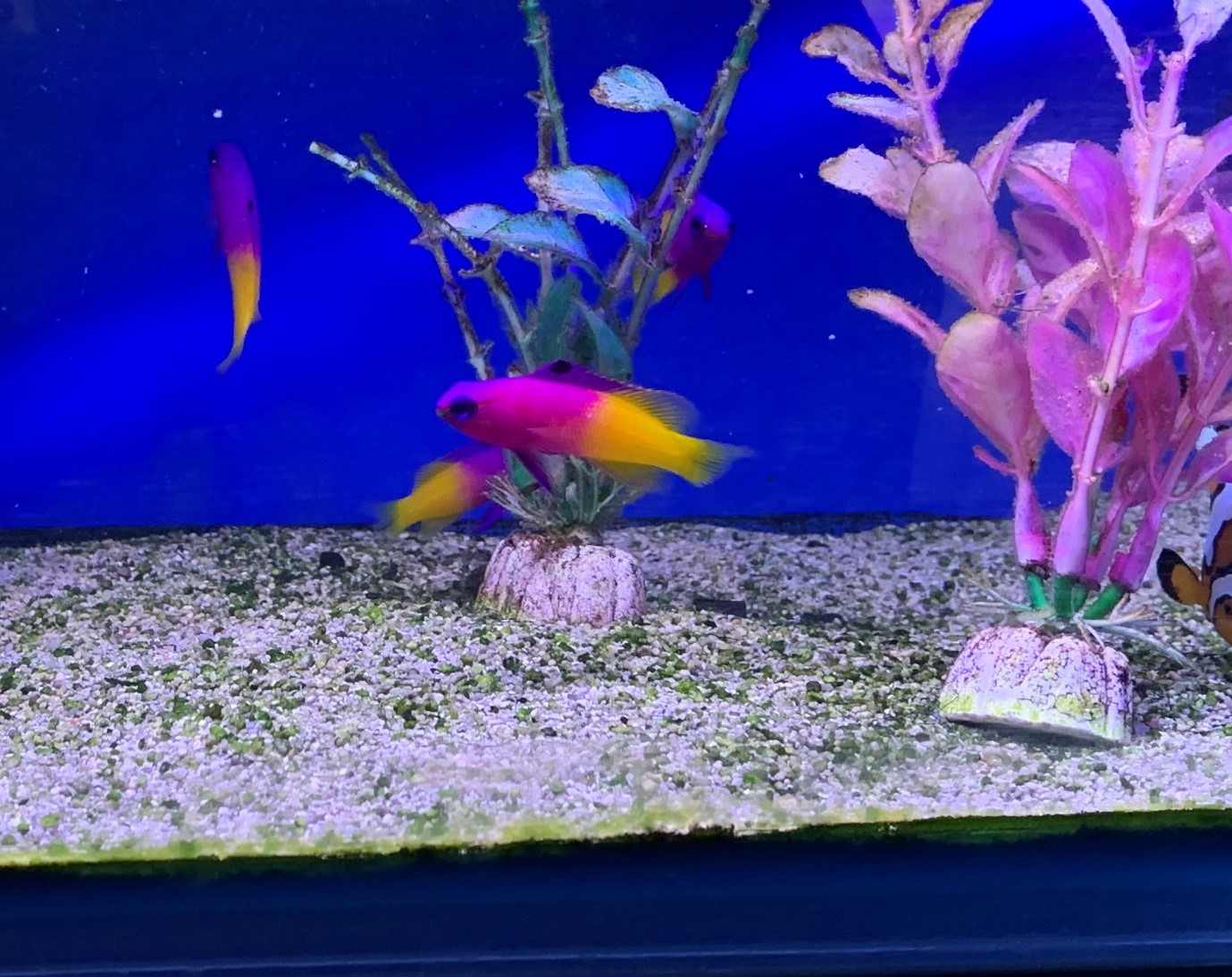
A popular choice for reef aquaria, the Royal Gramma (Gramma loreto) can be kept in pairs or harems, providing fascinating behaviour as well as striking colour. Rather than adding specimens of the same size, the social dynamics of many reef fishes work best when one specimen is larger and clearly dominant – this discourages smaller individuals from attempting to fight their way up the pecking order. The easiest way to establish a group is to buy one readymade, such as this one at Mere Park.
https://www.fishkeeper.co.uk/fish/marine/dottybacks-grammas/royal-gramma-


